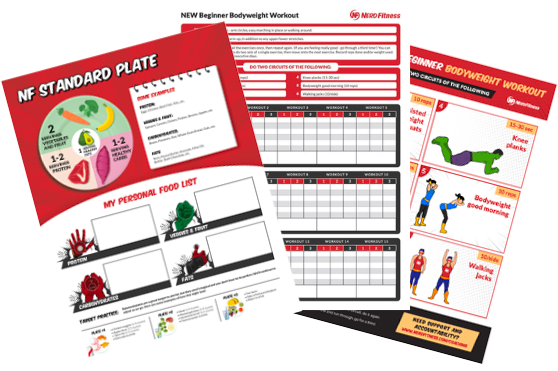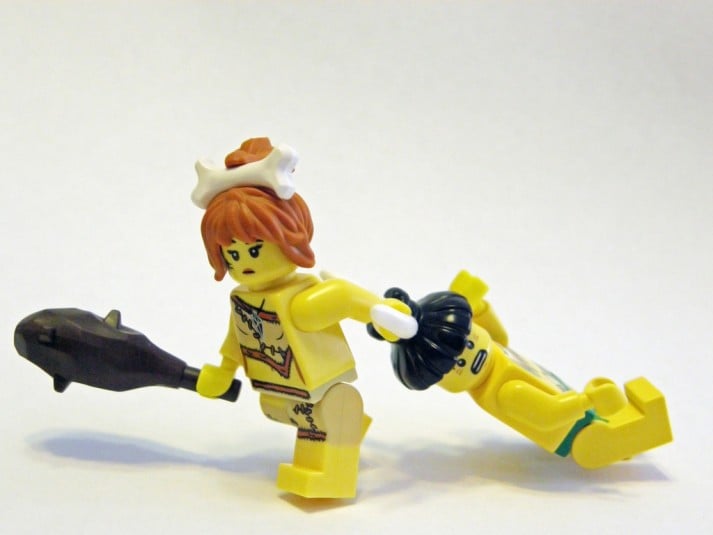
I don’t follow the Paleo Diet.
Weird, I know. A majority of people who stumble across this site through Google come from our article, “The Beginner’s Guide to the Paleo Diet,” which has been viewed millions of times and shared 50,000+ times on social media. Actually, other than a 30-day full Paleo experiment years ago, I’ve never been 100% full-Paleo.
“But Steve! You run Nerd Fitness! Isn’t this a Paleo Site? You are living a lie! You eat food that is poison. Shame! Loud noises!”
I see you yelling at your computer right now, and it makes me chuckle (like an evil villain).
Here’s the truth: I might not follow the Paleo Diet religiously like many do, but I do follow a “Paleo-ish diet.” I’m healthy, stronger than ever, and found a healthy balanced relationship with food that works for me. I bet it would work for you too.
Time to go ALL IN on moderation! SUPER MODERATION! Radical moderation!
Should I count calories or just go Paleo?
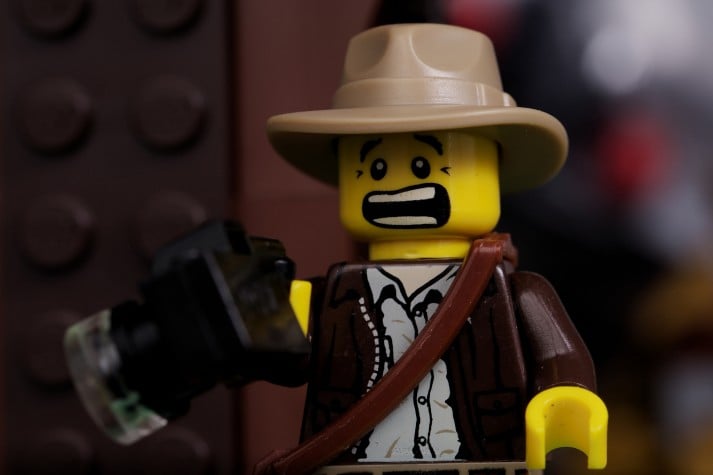
As we talk about in our “Is a calorie really a calorie article” eating a caloric deficit is the primary driver of weight loss.
That means at the most basic level: as long as you eat less than you burn, it doesn’t matter if you count calories or practice the Paleo Diet, you will lose weight.
But there’s a reason more than two-thirds of adults are considered to be overweight or obese: it’s not that simple, and it ain’t that easy!
That there’s a tremendous amount working against us in our quest to get healthy. Throw in issues like habits, willpower, sugar, culture, and predictably irrational human behavior, and it can make “just count calories and eat less” feel like a Herculean task.
If you’ve tried counting calories or followed Weight Watchers only to put the weight back on, you know that the strategy can be incredibly fragile (in other words, without the program, things fall apart). In fact, a recent study in explains that we’re all doomed to stay fat if we continue to follow this conventional dieting advice.
That’s where the Paleo Diet can help:
1) When you go on a calorie-restricted diet but don’t change any other aspect of your relationship with food, you will struggle to see long-term results. You get the illusion of change (you see some short-term success) but the changes don’t stick. So, after your diet, you quickly return to your starting weight.
One central reason for this faux-success is that the majority of crappy foods we eat have been designed to target pleasure centers in our brains, make us feel more hungry than we really are, and makes our body scream “MOAR FOOD IN MAH BELLY!!!”
We can resist temporarily and see success (the battle), but unless we change our fundamental relationship with this food, we’ll lose the war.
2) Calorie-restrictive diets are difficult to pull off accurately long-term unless you are militant in your reporting. Depending on what you’re eating and the source of the food, you could be severely underestimating what you’re consuming. That tiny bag of “healthy” snacks that says 100 calories on the front? It has 3 servings in it! Or worse yet, if you are just guessing, a few bad guesses and you’ll be gaining weight when you think you’re losing, which can cause us to get derailed quickly.
3) Calorie-restrictive diets are not antifragile, meaning they break down at the first sign of trouble. Unless all of your foods come out of a box or bag (which I don’t recommend), with accurately labeled amounts (which is unlikely), or you travel with a food scale and check your amounts against a database (which is, again, unlikely), these diets can be difficult to sustain permanently. In other words, if you travel, eat out for business dinners, or attend parties, you may quickly find an excuse to pause or drop your diet plan.
4) Calorie-restrictive diets are simply hard to follow. Words have power. When you practice a calorie restrictive diet, it’s the equivalent of taking half a hit of a drug and telling yourself “you can’t have the other half of this.” You have to constantly tell yourself that you can’t have something or that you can only have part of it. It’s like the psychology trick “don’t think about a pink elephant.” But instead it’s “don’t eat the second half of that meal on your plate.”
For these reasons above, we tend to see more success with people on some form of the Paleo Diet over conventional calorie-restricted diets. Again, in any technique calories need to be restricted, but we feel the Paleo Diet has some advantages:
- It’s simple: eat this, not that. (Easy to stick to!)
- It helps remove the addictive hold sugar can have over your brain.
- It doesn’t require tedious counting or rigorous portion control. (Willpower win!)
- It’s antifragile: no matter where you are or what scenario you’re in, you know what you should and shouldn’t eat.
Consider “Paleo-Ish”
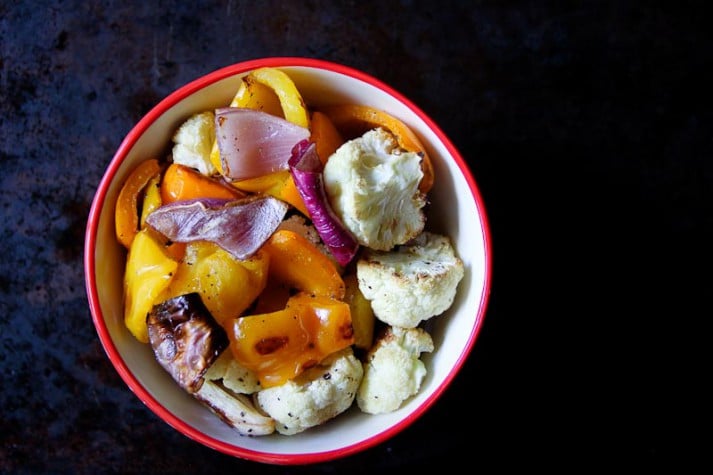
For people with addictive personalities, and people who have zero desire to count calories (me!), the Paleo Diet is a GIANT step in the right direction of living a healthier balanced life. It’s also a giant step with simple rules to remember. That’s the big win of the Paleo Diet.
The Paleo Diet does two things counting calories doesn’t:
- It changes your relationship with food. Instead of fueling your body with tons of sugar and processed carbs, you are consuming more healthy fats, more vegetables, and protein. This can have a physiological effect on your body and brain with how you consume food and what you consume.
- It addresses satiety. Eating 500 calories of chicken and broccoli is drastically different from your brain’s perspective than eating 500 calories of Twizzlers and Coca-Cola. The former fills you up and will leave you full til dinner. The latter will have you asking “can I eat again right now? I’m hungry.”
When you follow a Paleo Diet, you are remove the hold the Dark Side has over your body; it’s much easier to get yourself to eat less sugar when sugar is basically removed from your diet.
But, to get this benefit you don’t have to go 100% Paleo. In fact, I think you can get there just by going “Paleo-ish.”
The important thing is stop thinking this change as a temporary diet or something you are doing until you reach a goal weight. Instead, build a balanced relationship with food that you can live with permanently.
This means we’re still following the basic rules laid out by the Paleo Diet (mostly vegetables, some fruit and nuts, quality meat, fish, and eggs), but if we eat outside the paleo diet occasionally or have a type of food that you eat because it works for you (beans, dairy, rice etc.), that’s okay!
In fact, this might be a BETTER approach for many people in the long term. By incorporating non-paleo foods into your “version” of the Paleo Diet occasionally, you don’t have to struggle with every freaking decision every time you put food on your plate.
Now, this isn’t an excuse to eat a bowl of sugary cereal every morning and call your diet “Paleo-ish.” But if you love beans/legumes or your wife/husband prepares it frequently, it might not be worth it to battle to keep them off your plate for the sake of “Paleo purity.”
Think of this like an 80/20 benefit – cut out the crap that takes the most willpower and provides minimal benefit to your health. “Paleo-ish” dieters adopt a hybrid diet by setting a general rule, such as “80% of my meals will be Paleo.”
If you go to a party and have an unhealthy meal, no problem – make your next meal healthy. If you consume dairy with some of your meals and you are healthy and happy, keep doing what you’re doing. Are you trying to build muscle and need to eat a caloric surplus? Eating rice and/or oats to get enough calories/carbs won’t get you struck by lightning for angering the Paleo Gods.
Again, I have zero interest in temporary success for you. If you go full Paleo for 60 days to fit into smaller pants, only to return to your previous way of eating once you’ve “made it,” your rollercoaster relationship with the scale will continue. However, if you make small changes and adapt a paleo-ish “nutrition plan” that becomes your new normal relationship with food, then 2, 3, 5, 10 years from now you’re going to still be living those changes.
You CAN Totally Do the Paleo Diet Wrong.

Okay, there’s one giant disclaimer when it comes to going “Paleo-ish”: It’s TOTALLY possible to do the “Paleo Diet” wrong. We all know these people in our lives.
We know vegetarians and vegans that delude themselves into thinking they’re healthy by eating “vegetarian” foods, but somehow are always eating foods like like donuts, pasta, vegan lasagna, pizza, and so on.
I had to chuckle when I saw cookies advertised at my gym the other day: they were proudly labeled as gluten-free and vegan… and contained about 500 calories each. Here’s what gluten-free actually means, by the way.
On the opposite side of the spectrum, we have very outspoken people who are probably doing the Paleo diet horribly wrong too. “Oh you eat rice and dairy? Those things are poison. Here, have a dozen of my cookies. Don’t worry, they’re Paleo.”
In my seven years of running Nerd Fitness (holy crap!), many people have emailed me disappointed, saying they weren’t losing weight on the Paleo Diet, “despite following it perfectly!” When I ask these people to send me a daily diary of how they are eating, the answer is obvious: although they are technically consuming “Paleo” foods, they are consuming 200+ grams of sugar in “healthy!” in snacks like Paleo cookies, Paleo muffins, or loads of dried fruit.
They wonder if they’re broken (“This doesn’t work for me! I’m hopeless!”), instead of realizing that they’re doing the Paleo Diet wrong.
Yeah, fruit CAN be a great part of your long-term diet. In moderation! But don’t think “healthy” fruit juice is anything other than sugar water with minimal nutrients in it. If you are consuming most of your calories from “Paleo snacks”, fruit, and making everything with sweet potatoes and calling it Paleo, you’re missing the point.
In the examples above, we’re avoiding making the tough changes. We’re avoiding doing the hard work. What’s the alternative?
We need to fix our relationship with food.
We are fixing our lifestyle, not going on a diet
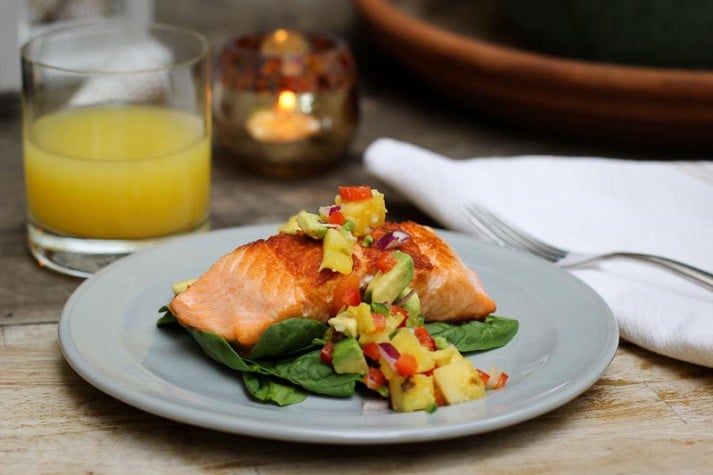
I eat foods like oats, white rice, and beans regularly. Despite the fact that these foods are clearly spawned from the depths of Hell, I’m healthier, stronger, and happier than ever. I eat them in moderation, just like EVERYTHING else.
Remember: Just because we follow a diet that many claim to cure all sorts of illnesses and ailments, doesn’t mean we can follow it blindly and expect results. I believe the Paleo Diet is better than most diets, but it needs to be done with intention.
Remember, one of the rules of the Nerd Fitness Rebellion is to “question everything.”
The Paleo Diet is not a religious doctrine – it’s a starting point. A starter philosophy to give you a simple, healthy framework to examine how you fuel your body. It’s why we’ve built a leveling system into the Nerd Fitness Academy – if Level 10 is strict Paleo, then we encourage people to hang out around Level 7 (which is a balanced, Paleo-ish approach)
When you break it down, the Paleoish Diet done right should look something like this:
- Eat real food! Try to minimize consumption of processed garbage.
- Eat a lot of vegetables.
- Eat plenty of protein.
- Minimize sugar consumption.
- Make mostly good decisions.
You absolutely can be a healthy vegetarian. You can totally be an healthy vegan. You can be a healthy strict Paleo dieter. You can be a healthy Paleo-ish dieter.
It comes down to your relationship with food and if your diet is structured to help you reach your goals.Your mom was right: you are a unique snowflake, and you need to find a balance that works for you.
I want to hear about your relationship with food.
Have you tried going full Paleo? What about being militant about calorie counting?
What did you learn about yourself when you introduce certain foods back into the mix?
Be honest: if you eat unhealthy foods while being “Paleo,” do you feel guilty about it?
-Steve
###


